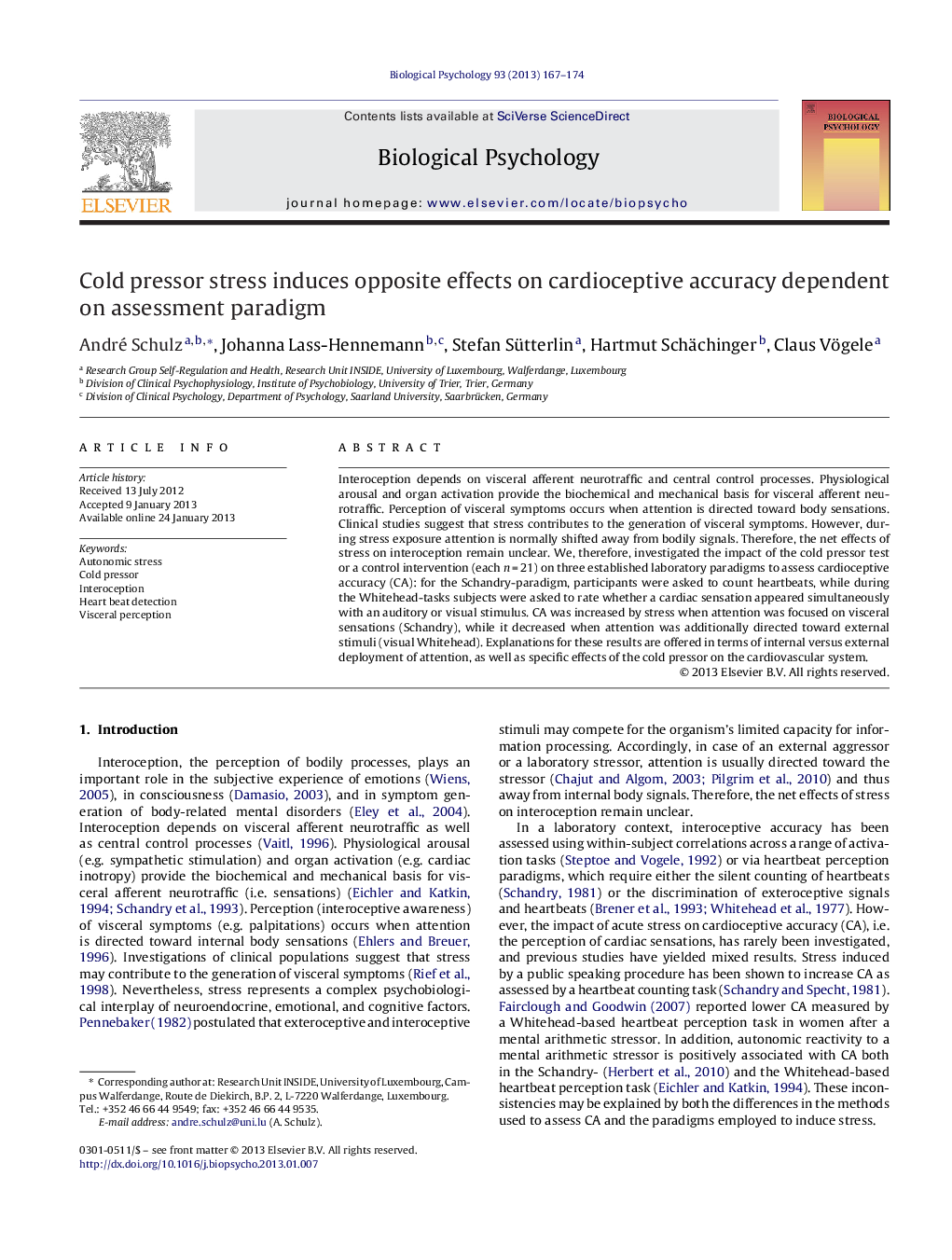| Article ID | Journal | Published Year | Pages | File Type |
|---|---|---|---|---|
| 920996 | Biological Psychology | 2013 | 8 Pages |
Interoception depends on visceral afferent neurotraffic and central control processes. Physiological arousal and organ activation provide the biochemical and mechanical basis for visceral afferent neurotraffic. Perception of visceral symptoms occurs when attention is directed toward body sensations. Clinical studies suggest that stress contributes to the generation of visceral symptoms. However, during stress exposure attention is normally shifted away from bodily signals. Therefore, the net effects of stress on interoception remain unclear. We, therefore, investigated the impact of the cold pressor test or a control intervention (each n = 21) on three established laboratory paradigms to assess cardioceptive accuracy (CA): for the Schandry-paradigm, participants were asked to count heartbeats, while during the Whitehead-tasks subjects were asked to rate whether a cardiac sensation appeared simultaneously with an auditory or visual stimulus. CA was increased by stress when attention was focused on visceral sensations (Schandry), while it decreased when attention was additionally directed toward external stimuli (visual Whitehead). Explanations for these results are offered in terms of internal versus external deployment of attention, as well as specific effects of the cold pressor on the cardiovascular system.
► The net effect of acute stress on cardioceptive accuracy (CA) is unclear. ► CA was increased by stress when attention was only focused on cardiac sensations. ► CA was decreased when attention was directed toward external stimuli. ► Cardiovascular effects of the cold pressor test may explain these results. ► Alternatively, stress effects on interoception may depend on attentional factors.
